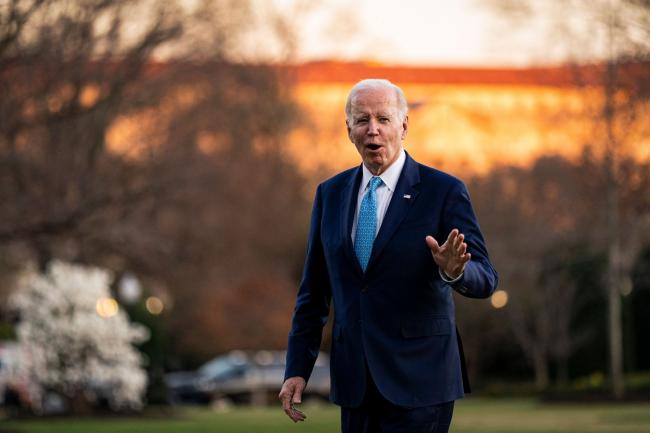(Bloomberg) -- President Joe Biden’s 2023 trade agenda will focus on creating new frameworks outside traditional free-trade agreements and enforcement of existing pacts, his trade office said.
The administration is working with countries in Asia to advance the Indo-Pacific Economic Framework, or IPEF, and on the Americas Partnership for Economic Prosperity with those in Latin America, the US Trade Representative’s office said in an annual report to Congress released Wednesday.
It’s collaborating with the European Union to address challenges such as China’s non-market practices, and in 2023 will intensify work on a trade arrangement to address greenhouse gas emissions of imported steel and aluminum.
“By placing workers and everyday people at the center of our trade policy, the Biden administration will continue to use trade as a force for good, to build a durable and fair tomorrow by pursuing resilience, sustainability, and inclusive prosperity,” the USTR said in the report.
It also will work to improve economic opportunities for US farmers, ranchers, and food manufacturers by expanding market-access opportunities in foreign markets, the USTR said. It plans to do this through negotiating agreements that include provisions to eliminate or reduce non-tariff barriers that can hamper market access for US agricultural products, the agency said.
The Biden administration hasn’t undertaken any negotiations for new free-trade deals, setting aside work it inherited from the Trump administration on pacts with the UK and Kenya, while continuing to deepen collaboration with both nations outside such an agreement, such as an investment partnership with Kenya.
US-China
In 2022, trade in goods between the US and China climbed to a record, a reminder that consumers and companies in the world’s two biggest economies remain deeply connected while their governments diverge on a range of economic and political issues. The deepening trade ties between the countries risk being challenged by the widening split between Washington and Beijing, which have clashed on issue including human rights, trade and competition for technology and markets.
Washington is working to lessen US reliance on China for merchandise, encouraging Western companies to invest in what Treasury Secretary Janet Yellen has termed “trusted trading partners” such as India in a process known as friendshoring.
In a video interview with Foreign Policy on Wednesday, US Trade Representative Katherine Tai said that she frequently finds herself fighting against the idea that the US is seeking to “decouple,” or “completely divorce” its economy from China’s, something that would be “extremely difficult” given the realities of connection. Rather, the US needs to find a way to co-exist and compete fairly with China while safeguarding its democracy and economy, Tai said.
“A lot of the challenges that we have are that if those are our goals, how do we accomplish this given that the second largest economy in the world operates on a very, very different system, has a lot of heft, and is its own sovereign and makes its own decisions,” Tai said.
Some of the administration’s other trade priorities, according to USTR officials and the report:
- The so-called review of necessity for the section 301 tariffs that the Trump administration imposed on more than $300 billion of imports from China will continue in the coming months
- On a dispute over subsidies to buyers of electric vehicles under the Inflation Reduction Act, the US is using a task force with the European Union to work through concerns
- The US is considering all options if concerns about Mexico’s ban on genetically modified US corn aren’t resolved, including a formal dispute resolution process under the US-Mexico-Canada Agreement on trade
- Pushing Canada to comply with a dispute panel’s ruling on allowing access to US dairy products
- The next round of IPEF negotiations will be held this month in Bali, Indonesia
- Making progress on the US-Taiwan initiative
- Implementation of the USMCA, including work with Mexico over US concerns about the nation’s policies that undermine energy and climate objectives
©2023 Bloomberg L.P.

